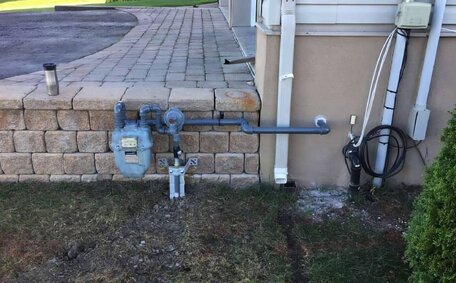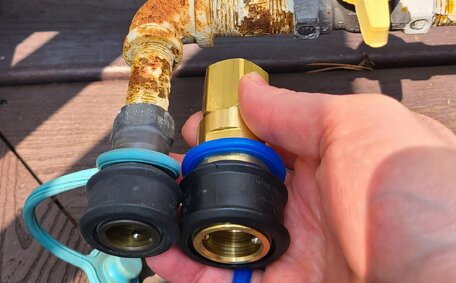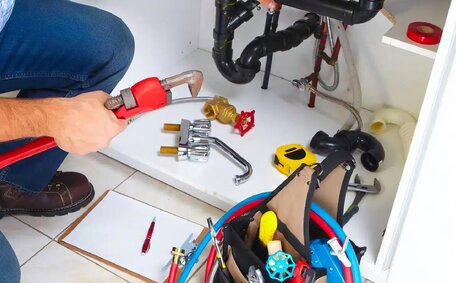Introduction to Natural Gas and Propane
This guide details the key differences between propane and natural gas, comparing their usage in heating, cooking, and powering appliances and vehicles to help Marsfield, Sydney, and surrounding area residents choose the most suitable energy source.
We’ll examine their chemical properties, energy efficiency, costs, environmental impact, safety considerations, and practical applications in both domestic and transportation scenarios.
Understanding both the commonalities and key differences between natural gas and propane helps readers make choices best suited to their specific energy requirements.
Chemical Composition and Energy Content
Natural gas propane both operate as energy sources but differ in composition; natural gas, being predominantly methane, serves as a primary source, while propane, derived from natural gas processing and crude oil refinement, contains mainly propane butane compounds.
This amplified energy concentration permits propane to be stored in fewer cubic meters effectively and transported with ease. Tanks filled with liquid propane gas lpg take up less space than the equivalent energy capacity of natural gas.
Comparative Energy Efficiency
Energy efficiency refers to getting the maximum amount energy output from appliances and systems while minimising energy input and waste. It affects the practical usage of both natural gas and propane in households and businesses.
Propane offers a slightly higher efficiency for heating, with furnaces achieving an AFUE rating of 95-97%, surpassing the 80-95% of natural gas systems. Yet, natural gas takes the lead in cooking, fuelling more efficient stoves.
With its higher BTU content per cubic foot and considering appliance efficiencies, propane may offer greater usable energy and better value for off-grid homes in Marsfield, Sydney.
Where natural gas pipelines exist, commercial users benefit from lower costs and sophisticated metering technologies. Meanwhile, propane is advantageous for its portability in areas lacking infrastructure.
Ultimately, the inherent efficiency differences between the two gases are minor compared to equipment selection, system design and energy conservation practises adopted by users.
Cost Considerations
Natural gas and propane prices are shaped by production processes, infrastructure, distribution methods, and market demand.
Natural gas requires pipelines for distribution, so initial connection costs are high. But once installed, delivery costs are relatively low. Propane relies on pressurised tanks and road transportation, leading to higher recurring fuel costs compared to the direct pipeline delivery of natural gas.
Recent market trends in Australia have caused natural gas prices to surge owing to export demands and limited domestic supply, while propane costs have been relatively stable.
In Marsfield, Sydney, off-the-grid homes may find propane a viable alternative to natural gas, despite its higher per BTU costs, largely because connecting to natural gas pipelines can be prohibitively expensive.
For grid-connected homes and businesses, natural gas provides good value. But market volatilities can lead to unpredictable price hikes.
Environmental Impact
Both natural gas and propane burn cleaner than other nonrenewable fuels like gasoline, producing less carbon dioxide. However, natural gas is often considered the more eco-friendly option.
Compared to propane, natural gas emits almost 30% less CO2 per BTU, and methane, its primary component, poses less risk in terms of atmospheric damage due to its rapid dissipation.
Nonetheless, propane combustion emits considerably fewer greenhouse gases compared to gasoline and diesel, making it a step towards renewable energy for some.
For numerous Marsfield dwellings and enterprises aiming to reduce environmental footprint, natural gas stands as the preferred option to fuel your home or establishment, while propane fits the bill for those without pipeline access, as long as diligent handling and upkeep avert any leaks.
Storage and Delivery Methods
Natural gas is typically distributed through extensive pipeline networks, flowing directly to homes and businesses with connections. Storage is therefore not a major concern.
Propane, however, can be stored more effectively than natural gas, onsite in pressurised tanks, usually above or below ground level. Propane is transported in liquid form to areas without pipeline service, enabling off-grid usage but complicating delivery.
Rural homes without access to natural gas pipelines rely on bulk propane deliveries, where it becomes vital despite the increased transportation costs.
Urban households can opt for either fuel; natural gas benefits from straightforward pipeline delivery, while propane storage may consume outdoor space and necessitate permits.
Safety Considerations
Safety is critical when dealing with flammable gases like natural gas and propane due to their potential hazards.
Because natural gas is lighter than air, leaks tend to dissipate quickly, whereas propane, which is heavier, may accumulate at ground level and require enhanced ventilation.
Only certified technicians should install and service gas systems. Annual inspections with gas sensors aid early detection of potential leaks. Rust, damage or appliance faults should be addressed immediately.
Safe use also relies on consumer practises. It is critical to keep flammable materials away from devices, maintain proper room ventilation, avoid obstructing vents or pipes, and steer clear of DIY gas repairs.
Following professional protocols for the storage, handling, and upkeep of natural gas and propane systems is essential for safety and efficient use.
Household and Transportation Applications
At home, both natural gas and propane power appliances like stoves, ovens, and heating systems, with natural gas generally favoured for efficiency in primary appliances and propane preferable in small-scale applications, including outdoor and portable heating.
As alternative fuels, both compressed natural gas (CNG) and propane are used in transport. Propane conversion kits enable vehicles to run on LPG or LNG, while CNG usage in specially-adapted vehicles leads to cleaner combustion.
CNG transportation is more common globally. But LPG vehicles are also popular in Australia, especially for commercial fleets. Dual-fuel CNG/petrol systems increase flexibility for drivers.
For Marsfield, Sydney households on the pipeline grid, natural gas commonly fuels major indoor appliances, while propane is the go-to for specialized applications as a primary or backup energy source.
Choosing Between Natural Gas and Propane
When deciding between natural gas and propane, consider your location, existing infrastructure, budget, and energy usage needs.
Should your location have natural gas pipeline services, it usually presents the most cost-effective and convenient option for heating and powering appliances, with direct grid connection for homes and businesses.
Meanwhile, propane is well-suited for rural properties without gas infrastructure, providing off-grid energy through pressurised tanks despite the higher delivery costs and is also useful for applications such as outdoor heating.
For most Marsfield households with pipeline access, natural gas provides the capacity for all major indoor systems at competitive rates. But market volatility can cause unpredictable price hikes.
When considering environmental effects, natural gas burns cleaner, but small-scale propane serves as an eco-friendlier transitional option.
Contact Marsfield Plumbing by email or call us for expert advice on the best gas supply for your home or business.






